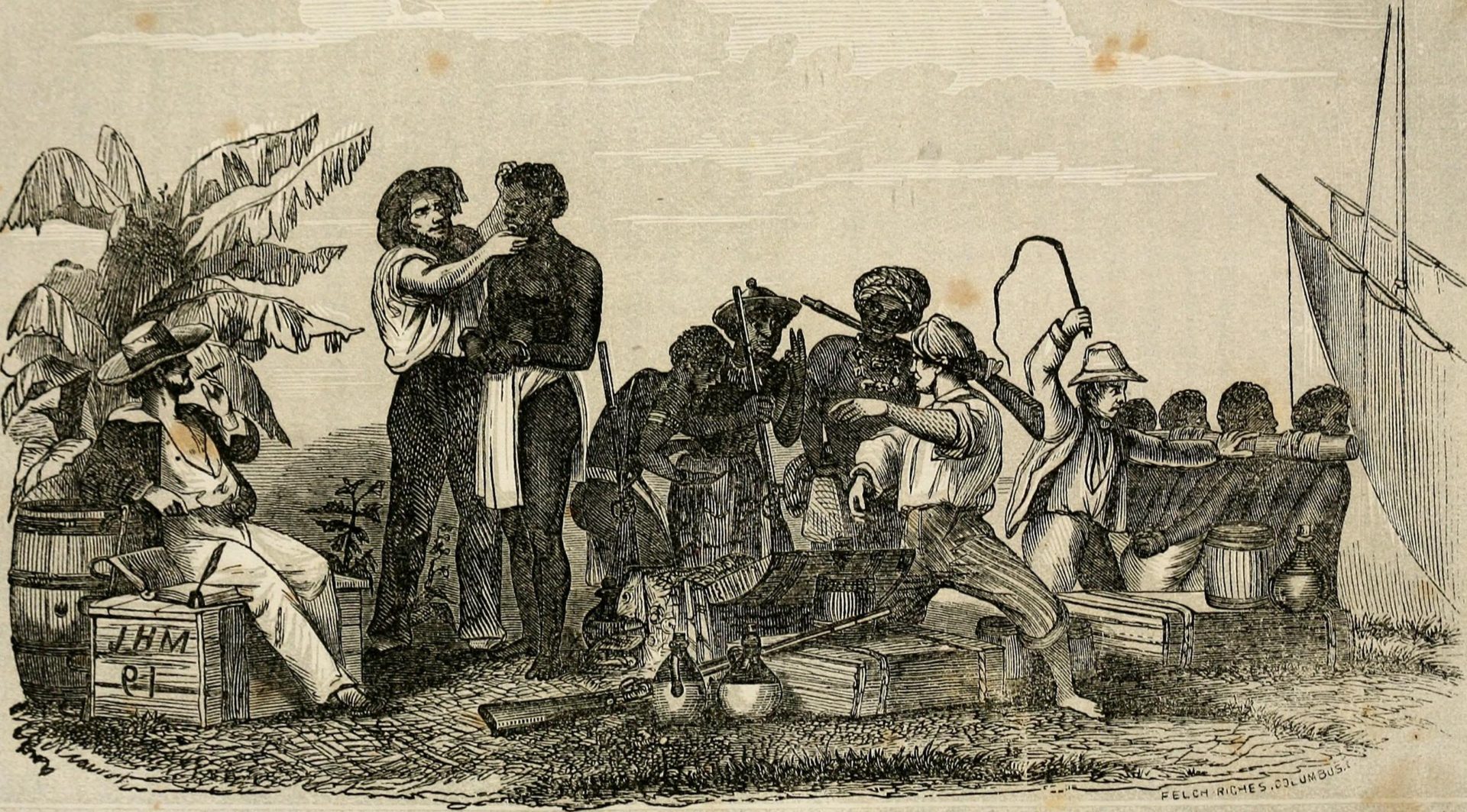
How often have we concluded our pledge of allegiance with these words: “with liberty and justice for all”? Our declaration of independence was signed in 1776 with the self-evident truth etched for all time that, “all men are created equal,” while the ugly truth was that more than 500,000 slaves were held as property, some by the very men who signed that document. (In fact, Jefferson’s first draft made detailed mention of slavery but those portions were eventually removed.) With the same heinous irony, the pledge of allegiance has been used for over 100 years, during which time liberty and justice have largely been reserved for those of a lighter skin tone.
Recent events have again triggered deep emotional response with the convicting phrase, “I can’t breathe.”
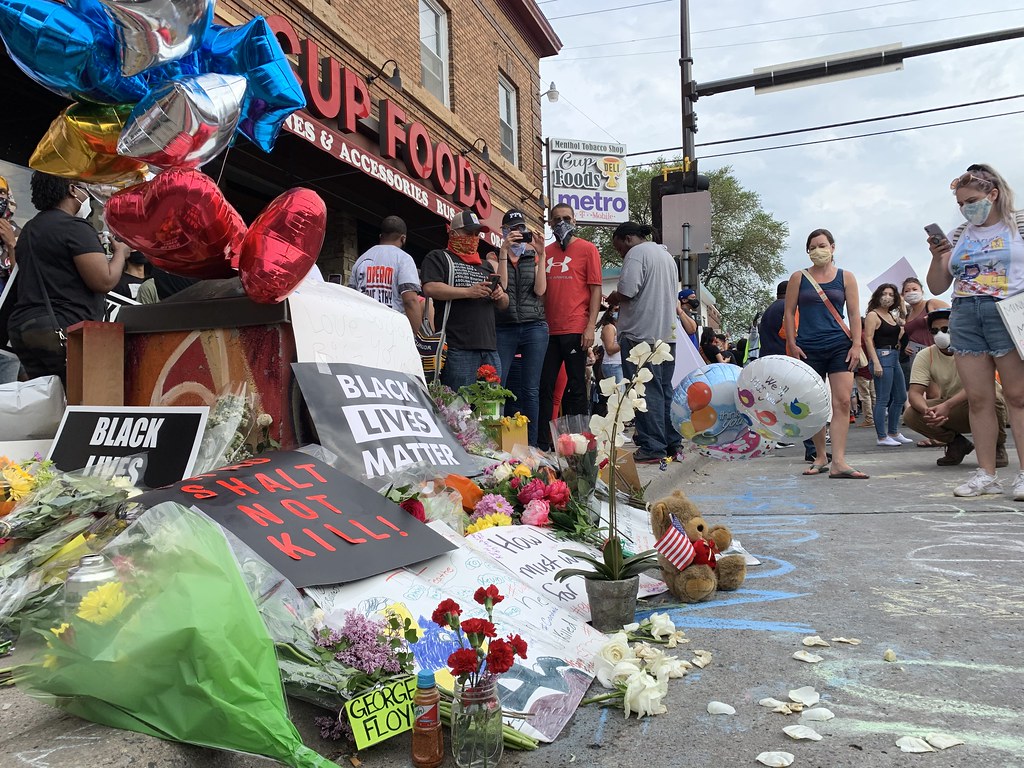
Where were you when you first heard the name George Floyd? When did it get your attention? What about these other two:

The George Floyd video that shook the nation was not the first, but just the most recent and most visible example of injustice. Ahmaud Arbery (25), a former high school football player, was out for a jog when he was chased and gunned down by three Georgia vigilantes. That was on February 23. The gunmen were not arrested until May 7. Breonna Taylor (26), a beloved EMT in Louisville, KY, was killed in a narcotics raid as plain clothes detectives in unmarked cars executed a “no knock” entry into her apartment. Taylor’s boyfriend, licensed to carry a weapon, called 911 to report intruders in their home and fired on the men coming in, injuring one. The officers fired more than 20 bullets in response, killing Taylor.
George Floyd (47) grew up in Houston, using his height to play basketball and football there and also at South Florida Community College. He worked as an auto customizer in Houston and become locally known as rapper “Big Floyd.” Falling in with a rough crowd, Floyd was arrested for armed robbery and spent five years in prison. After being released in 2013 he was involved for a time in Resurrection Houston, a church and urban ministry. In 2014 he moved to Minneapolis where he worked as a trucker and in security. He was laid off in this spring due to the growing COVID-19 pandemic.
On May 25 Floyd was killed after being held down for almost nine minutes, despite repeatedly saying, “I can’t breathe.” For many in our country this was a reprise of what happened in 2014 that galvanized the Black Lives Matter movement.
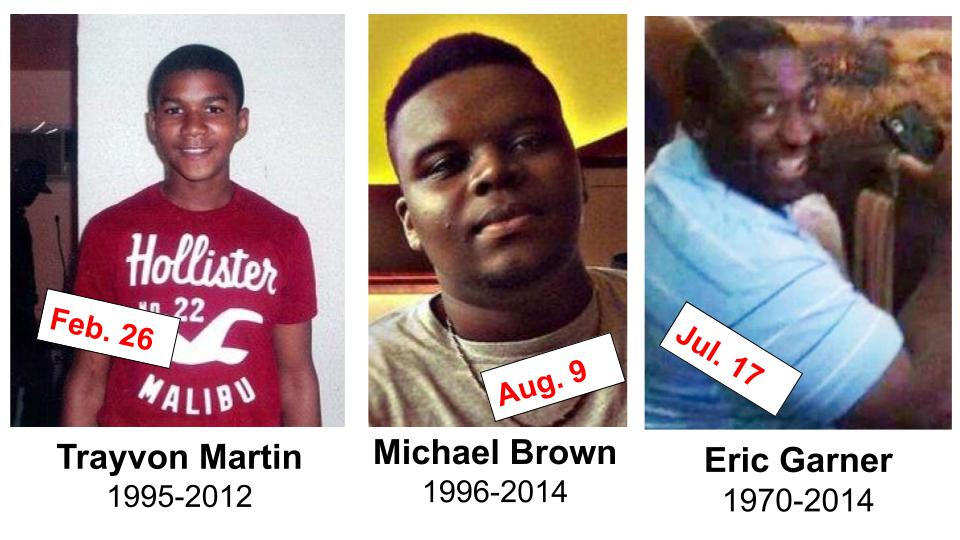
Trayvon Martin (17) was walking home from a convenience store when he was accosted, shot and killed by George Zimmerman, who was also injured in the altercation. In July of 2013 a jury acquitted Zimmerman. Michael Brown (18) was shot six times in Ferguson, Missouri, by a police officer who fired twelve rounds at him. There are conflicting accounts of the events, but in the end the grand jury chose not to indict the police officer and the U.S. Department of Justice found the officer was acting in self defense. The message was getting through that black lives didn’t matter.
Then Eric Garner (44) was killed after being restrained in a chokehold by a New York City police officer, rasping out the now immortal expression, “I can’t breathe,” eleven times.
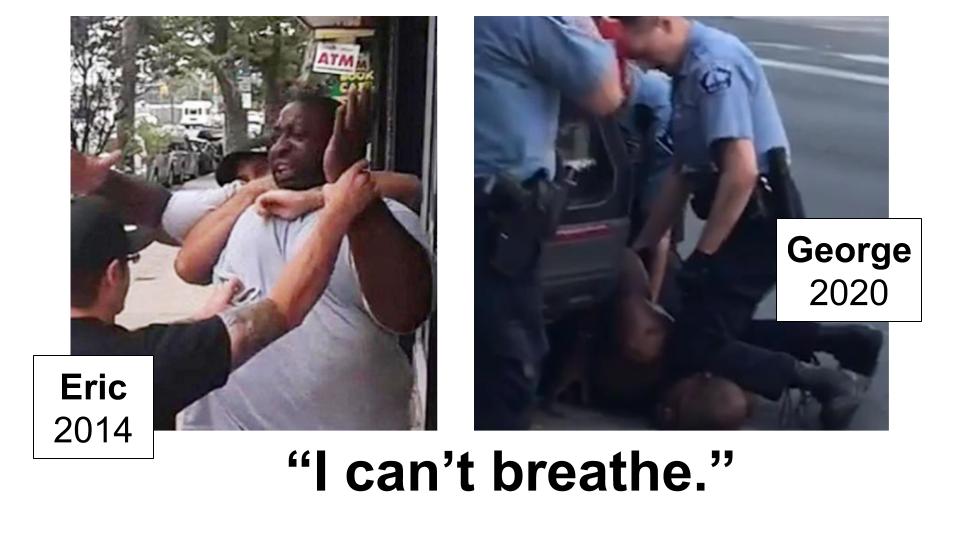
I’ll admit that until last week I had not seriously looked into any of these stories. Like many suburban Americans I heard about the Ferguson riots in 2014 and then the Minneapolis riots in 2020 – but the deaths of Eric and George did not hit my radar until riots came to Tampa itself. Suddenly the issue was much closer to home.
“A riot is the voice of the unheard.”
Martin Luther King, Jr.
This reveals the reality of the situation – that for most of us racial injustice is simply not on our radar. We don’t see it every day. We don’t feel it. These demonstrations are a call to listen and to see. Here is the key question: where is the problem?
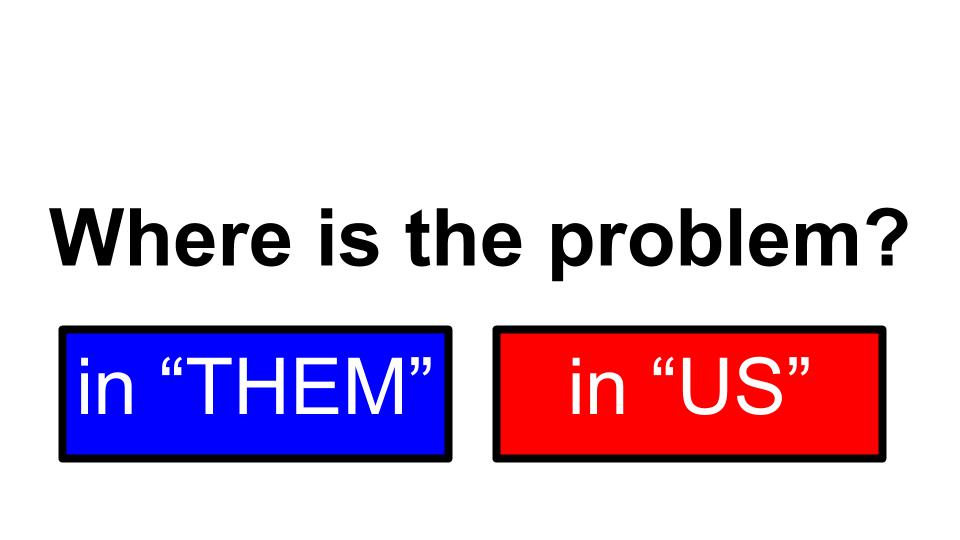
If we answer: in “them,” then we can sit back and let it play out. If we admit the problem is in “us” and “all of us,” then it calls us to action. The historic book Divided by Faith (Emerson and Smith, 2001) revealed the truth that while most white Americans are not racist by the traditional definition of deliberately prejudiced against minorities, our society still remains RACIALIZED. The United States remains divided along racial lines and that is still almost as true in 2020 as it was in 1960. Thankfully Divided by Faith and the multicultural church movement has begun to bring change in this area. But there is still a long way to go!
Here is one finding from Emerson and Smith: white and black evangelicals tend to interpret the same situation very differently.
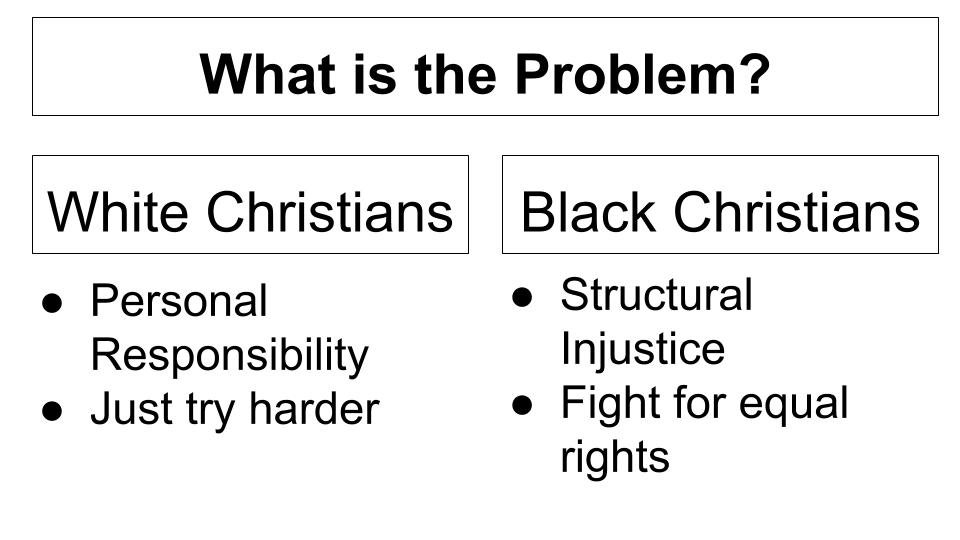
If we deeply believe that most of the issue comes down to responsible choices and hard work then the problem is in “them,” and we might pray casually for “them,” but we don’t feel any real call to action. It is only when we begin to understand systemic injustice that our eyes begin to open to the reality and the need for coordinated efforts. Let’s remember our history.
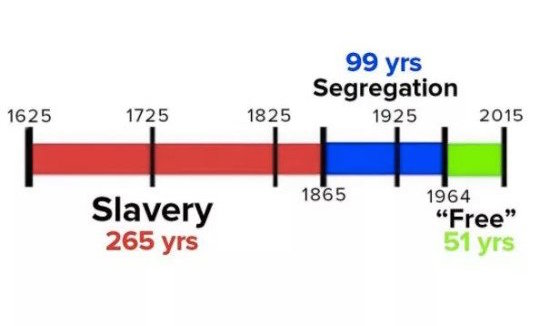
The United States was founded on the graves of native Americans, mostly killed by European diseases. Those natives were systematically eradicated and consistently betrayed until they were isolated in distant reservations. It took hundreds of years for the U.S. government to publicly acknowledge the many gross injustices committed to fulfill our “manifest destiny.”
And America was built on the backs of slaves. First the sugar industry and then cotton, required cheap labor. The rich grew richer. The slaves remained in “their place.” Even our beloved Abraham Lincoln thought the best solution was to ship the slaves back to Africa or somewhere else. That’s how complicated and confusing the situation had become by the 1860s.
Segregation and Jim Crow extended injustices well into the twentieth century. If you want a convicting and powerful 20th century story, read John M. Perkins, Let Justice Roll Down.

What Dr. Perkins and many others have been saying for decades now is that injustice remains embedded in our American society. It is a deep and pervasive weed that will not be uprooted quickly or easily. It festers deep in our hearts and minds.
Ask a black friend to share his or her experience. Really listen. Racism is not over. Deep in our American psyche, in a place that we don’t access very often and certainly don’t talk about, there is this suspicion and feeling that equates blackness with danger, with violence. This is the impulse that leads suburbanites to lock their doors when a group of black teenagers walk by their minivan, or a working woman to clutch her purse as a suit-wearing black man passes her on the sidewalk. We are largely insulated from these realities but they persist in the 21st century.
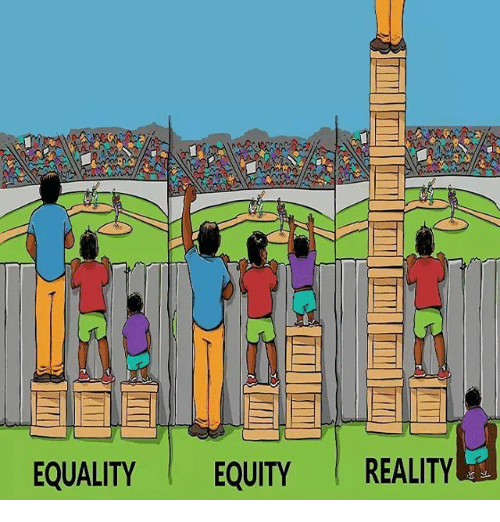
There is the emotional, psychological reality and there is the physical, practical reality that in terms of wealth, income and opportunities, the deck is wildly stacked against black people. One example that hits home for me is the shameless discrimination against black families in Chicago in the 1950s. Read this article from Made to Flourish for more.
We often think of helping people with the phrase, “Don’t just give them a fish, teach them to fish.” That works well if there isn’t a fence around the pond, the pond isn’t polluted and there is fishing gear available. For many black Americans today, the fence is large, the housing, education and social pond is terribly polluted and the gear available has more to do with drugs and violence than with school and work.

My prayer is that George Floyd and these demonstrations will become a rallying cry for the church in America. May we move from our ignorance and apathy into awareness of our history and the present injustices built into our society. May we seek answers together with our brothers and sisters of color – many of whom already know the most helpful immediate steps forward. Consider well established programs like Big Brothers, Big Sisters and Kids Hope USA – providing mentors to at risk teens and kids all over the country.
There is a long way to go, but leaders like John M. Perkins have blazed a clear trail. Let’s listen, lament, learn and move forward to love and serve in Jesus’ name. As we pray, “Your kingdom come, your will be done,” may we – as believers and together as a church – get to work to prayerfully pursue true “justice for all.”
